As the next iteration of Trumpcare/Ryancare is finalized by warring conservatives, it’s fair to demand that Democrats share their post-Obama vision for health care.
Yes, Democrats need to be fighting efforts to repeal and replace the increasingly popular Obamacare/Affordable Care Act (ACA) system with Trumpcare/Ryancare. Though the ACA is the spurned love child of the Heritage Foundation, Orin Hatch, Newt Gingrich and Mitt Romney, it’s much more humane than Trumpcare/Ryancare, which would cause at least 24 million Americans to lose their Obamacare health coverage, and many more if states choose to further weaken protections.
 But for the long haul, Democrats need to set their sights higher than Obamacare. They must become full-throated champions for allowing Americans the option of buying into the Medicare system. Here are five reasons why:
But for the long haul, Democrats need to set their sights higher than Obamacare. They must become full-throated champions for allowing Americans the option of buying into the Medicare system. Here are five reasons why:
Reason #1. Medicare is popular “government run health care.” For decades, Republicans have robotically vilified “government run health care” and “socialized medicine,” presuming that Americans agree with them that government will screw up anything it undertakes. And Democratic politicians have cowered in fear.
However, Medicare is a notable exception to that rule. While the private sector-centric Trumpcare/Ryancare has 17% approval and Obamacare has 55% approval, Medicare has the approval of 60% of all Americans, and 75% Americans who have actual experience using Medicare. It’s not an easy thing for a health plan to become popular, so Medicare’s relative popularity is political gold. Democrats need to tap into it.
Reason #2. Medicare is better equipped to control medical and overhead costs than private plans. Medicare has a single administrative system, while dozens of health insurance corporations have dozens of separate and duplicative administrative bureaucracies. That decentralized approach to administration is expensive.
Also, for-profit health insurance corporations have to build profits and higher salaries into their premium costs. For instance, the insurance corporation United Health Care, to cite just one of dozens of examples, pays it’s top executive $33,400,000. That’s 135 times more than the not-for-profit Medicare system pays its top executive, about $247,000.
Medicare also is large enough that it has a great deal of negotiating leverage. It could have even more if Congress empowered Medicare to more effectively negotiate pharmaceutical prices.
Because of all of that, the Center for Budget and Policy Priorities finds:
Medicare has been the leader in reforming the health care payment system to improve efficiency and has outperformed private health insurance in holding down the growth of health costs… Since 1987, Medicare spending per enrollee has grown by 5.7 percent a year, on average, compared with 7.0 percent for private health insurance.
So, if Democrats want to better control health care costs to help the economy and struggling Americans, the Medicare model offers the best hope for doing that, not the corporate-centric model that we currently are using.
Reason #3. A Medicare-for-All option is very politically viable. Most Democratic politicians understand that a Medicare-for-All option makes good sense policy wise, but shrug it off as politically infeasible. They’re dead wrong.
By a more than a 5-to-1 margin, Americans support having a Medicare-for-All option. An overwhelming 71% support it, while only 13% oppose it. If you won’t try to sell a proven progressive idea that is supported by a 5-to-1 margin, you have no business being in progressive politics.
While “government-run health care” has been a weak brand for brand for Democrats, they have a clear path for rebranding their agenda. Medicare brand equity is right there waiting for Democrats to take advantage it, if they’ll only open their eyes to the opportunity.
Reason #4. A Medicare-for-All option will expose private health corporations as uncompetitive. Right now, one of the Democrats’ biggest political problems is that too many Americans have been brainwashed by conservatives into believing that the private sector is always more efficient and effective than the public sector. In other areas that don’t involve “public goods,” that is true, but not with health insurance.
The best way to bust that “private is always best” myth is to allow Medicare to sit alongside corporate health plans in the individual marketplace. If American consumers choose Medicare over private plans, because Medicare proves itself to be the cheapest and best option, then the conservatives’ “private is always best” myth finally will be busted.
Reason #5. A Medicare-for-All option can serve as a bridge to the best health care model – a public single payer system. The research is clear that countries who have single payer health care financing have better and cheaper health care than the United States has with it’s substantially private sector based health care system. For example, the nonpartisan, nonprofit Commonwealth Fund finds:
Even though the U.S. is the only country without a publicly financed universal health system (among 13 high-income countries: Australia, Canada, Denmark, France, Germany, Japan, Netherlands, New Zealand, Norway, Sweden, Switzerland, the United Kingdom, and the United States), it still spends more public dollars on health care than all but two of the other countries. …despite its heavy investment in health care, the U.S. sees poorer results on several key health outcome measures such as life expectancy and the prevalence of chronic conditions.
Obscure research reports like this aren’t proving persuasive to American voters. But when younger Americans are able to see for themselves through their shopping that Medicare is cheaper and better than private health insurance options, Medicare will build a bigger market share. After Medicare earns a larger market share, Americans may ultimately be much more open to shifting from a Medicare-for-all option to a Medicare-for-all single payer system that the United States ultimately needs in order to compete in the global marketplace and become a healthier nation.
It’s not enough for Democrats to only expose the reckless Trumpcare/Ryancare model and defend Obamacare status quo. They must also promote a Medicare-for-All vision for moving America forward. With the current President and Congress, a Medicare-for-All option obviously can’t pass. But aggressively promoting over the coming years will improve the chances that this Congress and President will soon be replaced and that a Medicare-for-All option can be enacted in future years.

 One of the primary rallying cries of the righteous defenders of Senator Al Franken is that he is being “denied due process.” Republican former Governor Arne Carlson was the latest in a long line of folks to make this righteously indignant
One of the primary rallying cries of the righteous defenders of Senator Al Franken is that he is being “denied due process.” Republican former Governor Arne Carlson was the latest in a long line of folks to make this righteously indignant 
 Gun advocates promised President Obama would be a gun confiscator, and they rushed out to buy stockpiles of weapons and ammunition. To no sane person’s surprise, it never happened, even in the first two years of his presidency when Obama’s party controlled the House, Senate and White House. It was never even proposed.
Gun advocates promised President Obama would be a gun confiscator, and they rushed out to buy stockpiles of weapons and ammunition. To no sane person’s surprise, it never happened, even in the first two years of his presidency when Obama’s party controlled the House, Senate and White House. It was never even proposed. Saint Paul. MN — Ronald “Bud” Carlson, a 68-year old veteran of the Minnesota Senate (R-Lake City), desperately needed a new power tie for an American Legislative Exchange Council (ALEC) annual meeting at a Trump Hotel in Las Vegas last week. But he didn’t have the money to pay for the Stefano Ricci one he needed.
Saint Paul. MN — Ronald “Bud” Carlson, a 68-year old veteran of the Minnesota Senate (R-Lake City), desperately needed a new power tie for an American Legislative Exchange Council (ALEC) annual meeting at a Trump Hotel in Las Vegas last week. But he didn’t have the money to pay for the Stefano Ricci one he needed. The NFL continually promotes itself as a meritocracy, a place where the most meritorious players make the teams and racial, ethnicity and socioeconomic status are irrelevant. They say it’s about performance, period.
The NFL continually promotes itself as a meritocracy, a place where the most meritorious players make the teams and racial, ethnicity and socioeconomic status are irrelevant. They say it’s about performance, period. Despite these facts, this offseason the Minnesota Vikings avoided Kaepernick like he was Spergon Wynn. The same Vikings team that ran off the politically minded Kluwe wouldn’t even consider signing the politically minded Kaepernick, despite his solid body of work on the field, and a presumably modest salary requirements.
Despite these facts, this offseason the Minnesota Vikings avoided Kaepernick like he was Spergon Wynn. The same Vikings team that ran off the politically minded Kluwe wouldn’t even consider signing the politically minded Kaepernick, despite his solid body of work on the field, and a presumably modest salary requirements.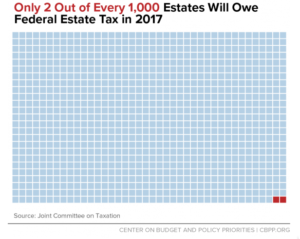 In the first year that Minnesota Republicans took full control of the Minnesota Legislature, they elevated Minnesota’s millionaire heirs and heiresses to the very top of their fiscal priority list. Representative Greg Davids (R-Preston) says the wealthiest Minnesotans should be able to “keep more of what their mothers and fathers and grandfathers and grandmothers have earned,” so Republicans significantly increased the’ estate tax exemption for millionaires.
In the first year that Minnesota Republicans took full control of the Minnesota Legislature, they elevated Minnesota’s millionaire heirs and heiresses to the very top of their fiscal priority list. Representative Greg Davids (R-Preston) says the wealthiest Minnesotans should be able to “keep more of what their mothers and fathers and grandfathers and grandmothers have earned,” so Republicans significantly increased the’ estate tax exemption for millionaires.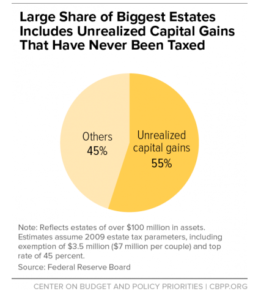 This is how intergenerational privilege perpetuates: Millionaire heirs and heiresses – having done nothing more than winning the birth lottery by being born into a wealthy family — are exempted from taxation, including for wealth that has already avoided taxation because it is
This is how intergenerational privilege perpetuates: Millionaire heirs and heiresses – having done nothing more than winning the birth lottery by being born into a wealthy family — are exempted from taxation, including for wealth that has already avoided taxation because it is 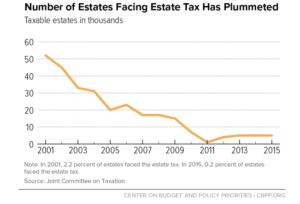 While today’s Republican Tea Partiers don Revolutionary War-era tri-corner hats while asserting that the estate tax is “Marxist,” the truth is that the estate tax has been strongly supported by a number of founding fathers.
While today’s Republican Tea Partiers don Revolutionary War-era tri-corner hats while asserting that the estate tax is “Marxist,” the truth is that the estate tax has been strongly supported by a number of founding fathers. In 2011, taxpayers gave billionaire Minnesota Vikings owner Zygmunt “Zygi” Wilf quite a gift, an even bigger gift than some realized at the time.
In 2011, taxpayers gave billionaire Minnesota Vikings owner Zygmunt “Zygi” Wilf quite a gift, an even bigger gift than some realized at the time.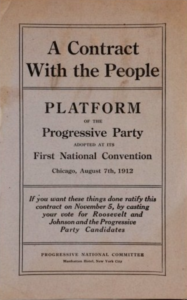 In 2018, progressive Governor Mark Dayton will be retiring, and Minnesota voters will be selecting a new chief executive. To retain control of the Governor’s office in 2018, Minnesota Democrats need a compelling policy agenda. It goes without saying that they also need a compelling candidate, but this discussion is about policy.
In 2018, progressive Governor Mark Dayton will be retiring, and Minnesota voters will be selecting a new chief executive. To retain control of the Governor’s office in 2018, Minnesota Democrats need a compelling policy agenda. It goes without saying that they also need a compelling candidate, but this discussion is about policy.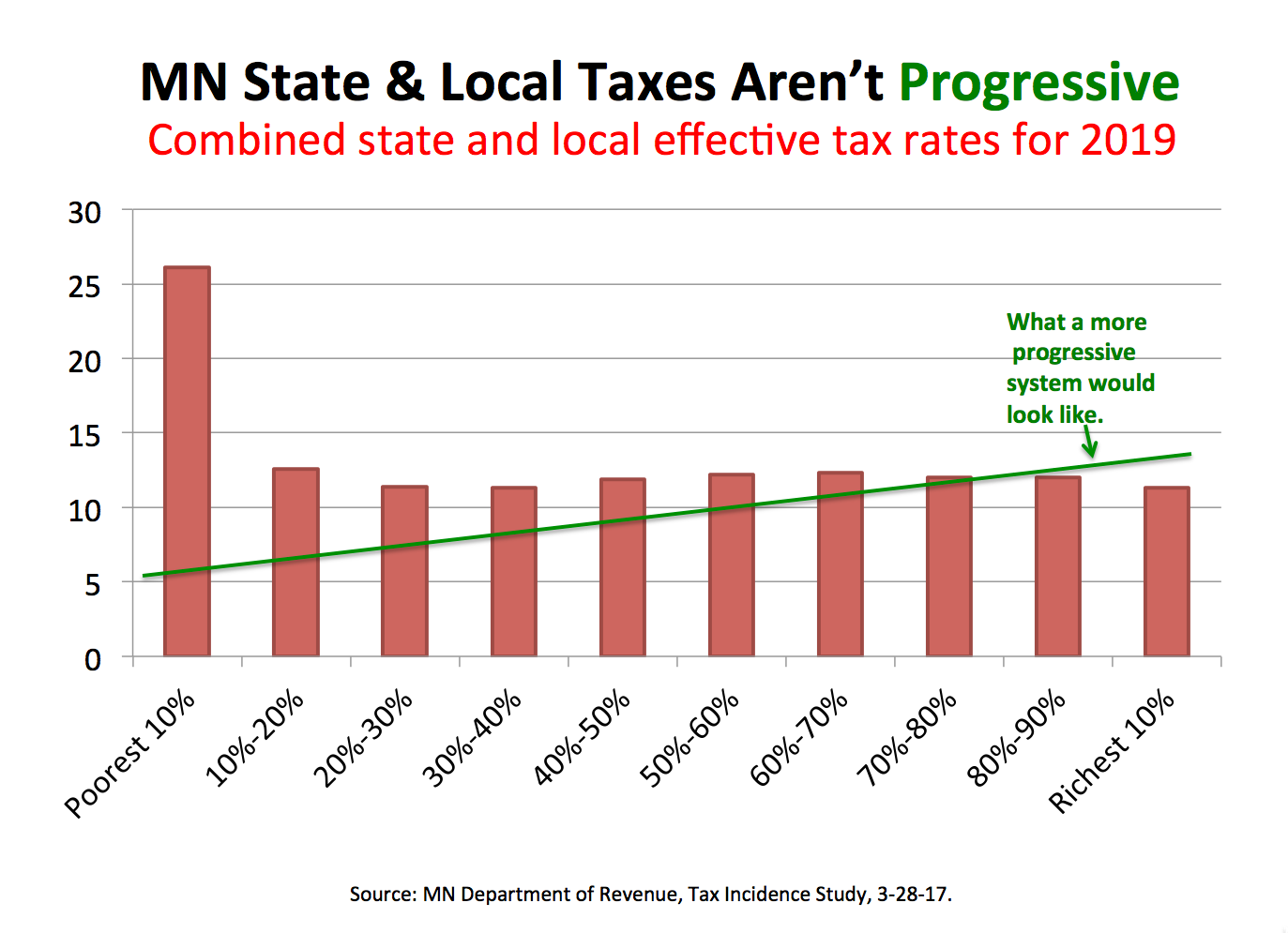
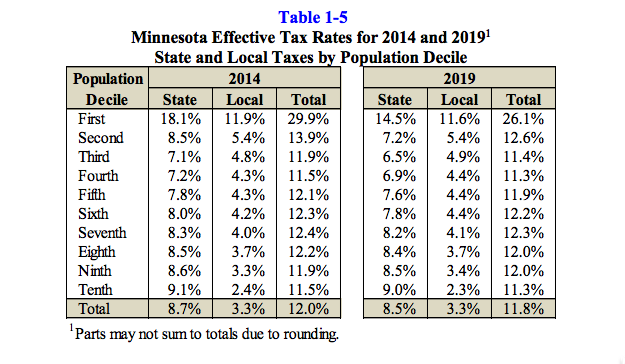
 The Affordable Care Act repeal, which will lead to 23 million Americans losing their health insurance protections, isn’t the only way the Trump Administration is endangering Americans. It’s proposal to ban patients from getting relief from cannabis-based medicines is just as ill-informed and cruel.
The Affordable Care Act repeal, which will lead to 23 million Americans losing their health insurance protections, isn’t the only way the Trump Administration is endangering Americans. It’s proposal to ban patients from getting relief from cannabis-based medicines is just as ill-informed and cruel.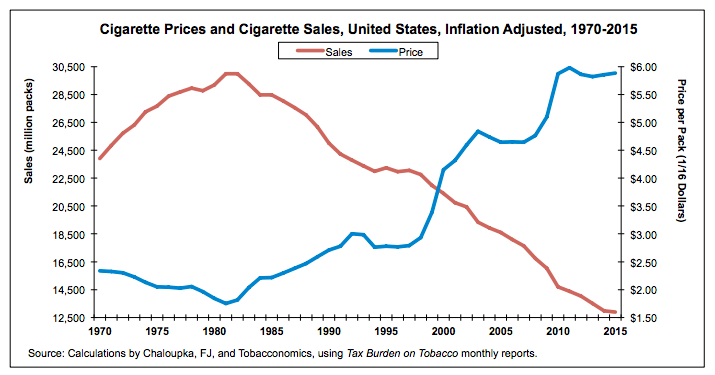
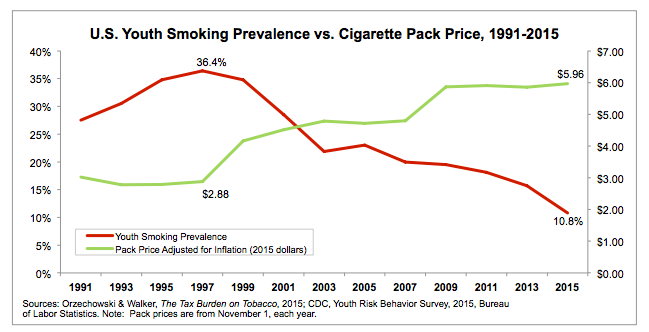
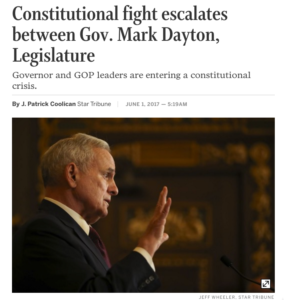
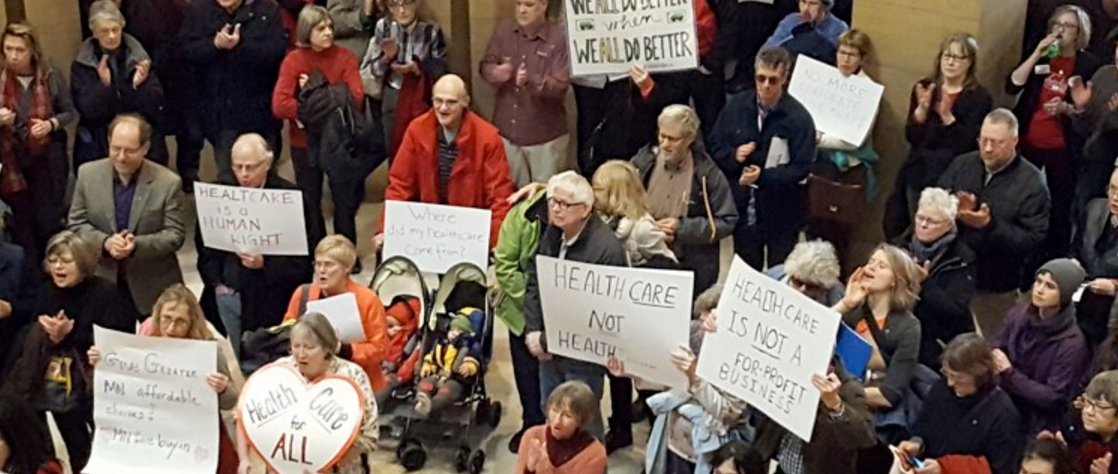
 As the 2017 Minnesota legislative session heads into the home stretch and President Trump is
As the 2017 Minnesota legislative session heads into the home stretch and President Trump is  Not Feeling The Mandate. Trump mandate? What mandate? Most Minnesotans don’t like Trump’s policies any better than they like him personally. About two-thirds (
Not Feeling The Mandate. Trump mandate? What mandate? Most Minnesotans don’t like Trump’s policies any better than they like him personally. About two-thirds ( Okay With O’Care. Then there is Obamacare. Republicans seem supremely confident that Obamacare is wildly unpopular. But a narrow plurality of Minnesotans actually is okay with it.
Okay With O’Care. Then there is Obamacare. Republicans seem supremely confident that Obamacare is wildly unpopular. But a narrow plurality of Minnesotans actually is okay with it.  But for the long haul, Democrats need to set their sights higher than Obamacare. They must become full-throated champions for allowing Americans the option of buying into the Medicare system. Here are five reasons why:
But for the long haul, Democrats need to set their sights higher than Obamacare. They must become full-throated champions for allowing Americans the option of buying into the Medicare system. Here are five reasons why: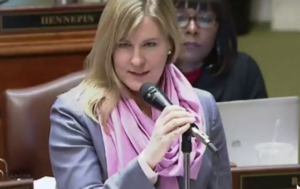 When it comes to
When it comes to 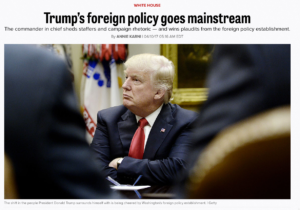 After a few TV-friendly bombings this week, many in the mainstream media and pundit-o-sphere are falling all over themselves to declare President Trump mainstream. That’s right, it seems our Muslim-banning, emoluments-pimping, Russia-colluding, climate change-denying, serial-lying President is now pretty much equivalent to Obama, the Bushes, the Clintons, Reagan and Ford.
After a few TV-friendly bombings this week, many in the mainstream media and pundit-o-sphere are falling all over themselves to declare President Trump mainstream. That’s right, it seems our Muslim-banning, emoluments-pimping, Russia-colluding, climate change-denying, serial-lying President is now pretty much equivalent to Obama, the Bushes, the Clintons, Reagan and Ford. Let’s also remember that in the same week the media declared Trump mainstream, we learned that a federal judge
Let’s also remember that in the same week the media declared Trump mainstream, we learned that a federal judge